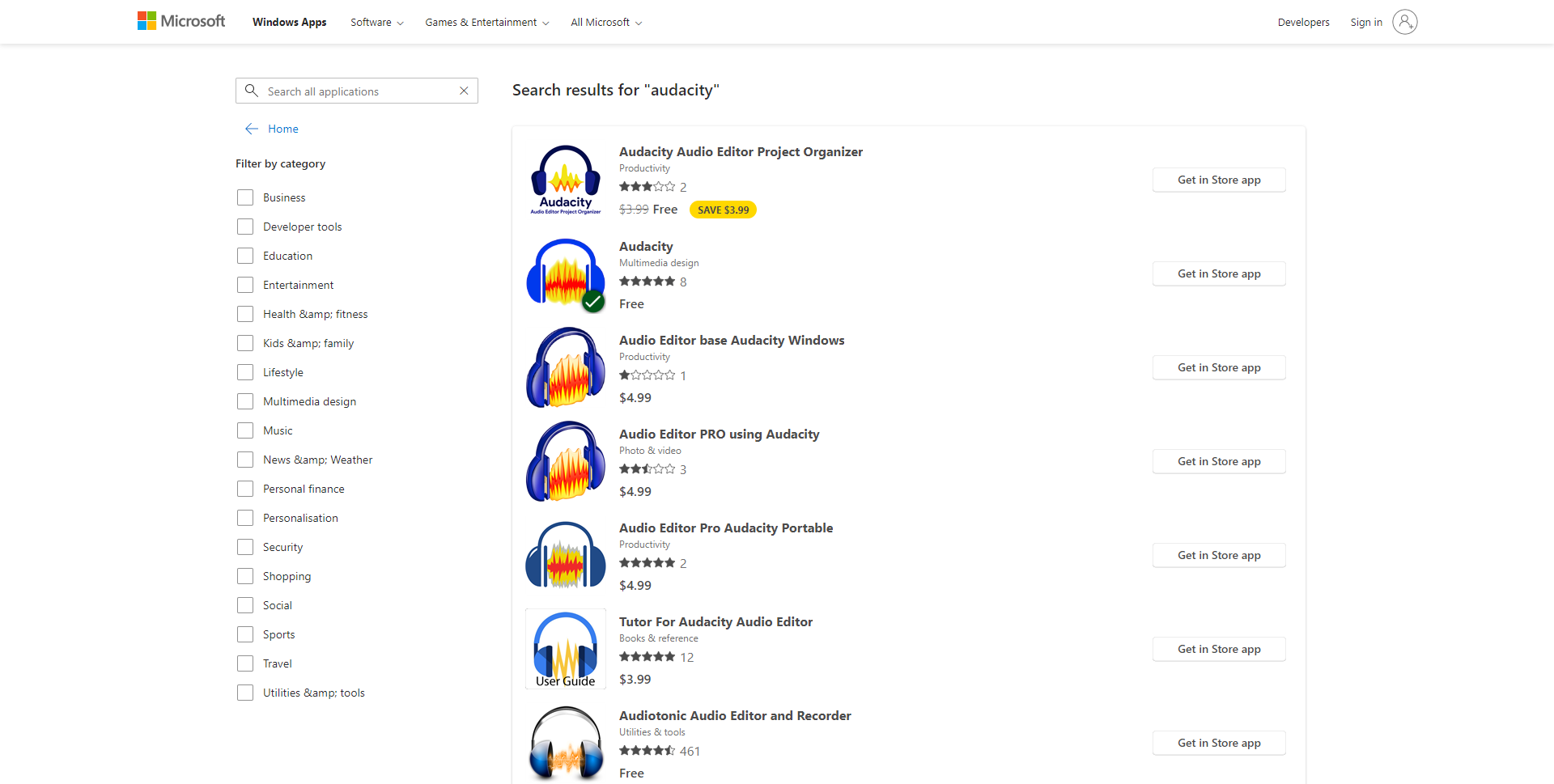Audacity releases on Microsoft Store to counter the 'ludicrous number of fake[s]'
A cacophony of clones.

Audacity is a piece of free audio software that, for many, is one of those go-to programs—because an ornery UX aside, it's more-or-less perfect. It's easy to use, flexible, free, and does everything a normal user needs from a piece of PC-oriented audio software.
This was always the intention, and Audacity's been around so long it feels like a part of the scenery—co-creators Dominic Mazzoni and Roger Dannenberg began work on it in late 1999, and the first release was in May 2000. It is impossible to know precisely how many users Audacity has had over the years, but it has at minimum been downloaded over 300 million times.
Software that popular means one thing: clones. In Audacity's case, clones that aim to take advantage of customers who don't realise Audacity is a free piece of software, and masquerade as the real deal in order to scam $4.99 from your parents. This problem is one thing on the wider internet: but it's a whole other beast when such knock-offs are being sold through something with the Microsoft Store's veneer of legitimacy.
Audacity itself wasn't on the Microsoft Store, which was arguably part of the problem. That's now changed, with the people behind the software realising that the flood of fakes was getting ridiculous.
Martin Keary aka Tantacrul is the current head of product at Audacity, and took to twitter to comment on the software's release.
Due to the ludicrous number of fake 'Audacity's on the Microsoft store, which charge users for non-functional or very limited applications, I've now (finally) taken the name back and have published the proper, free version for the first time.https://t.co/n3fd8AShShApril 28, 2022
The "ludicrous number of fake[s]" do, however, remain. If you search for Audacity on the Microsoft Store here's what you're greeted with (and here's the real thing).

Yep, the cunning developer 'MegaAppsLabs' has temporarily discounted its 'Audacity Audio Editor Project Organizer' by 100% and is managing to top results over the real deal. Oh well, it's a start. Asked about whether the Microsoft Store had any verification stuff that should stop this, Tantacrul wrote: "You'd think... I'm currently amending the logo, so we stand out more."
Keep up to date with the most important stories and the best deals, as picked by the PC Gamer team.
Clones of popular software are never going to go away: it's up to storefronts, somehow, to work out how best to filter them. There was something quite disgusting in how, following Wordle's emergence as a phenomenon, the various app stores were suddenly jammed with monetised clones boasting near-identical names that dominated any 'Wordle' search. Particularly frustrating when, as in that case and this one, the real deal is distributed as free software.

Rich is a games journalist with 15 years' experience, beginning his career on Edge magazine before working for a wide range of outlets, including Ars Technica, Eurogamer, GamesRadar+, Gamespot, the Guardian, IGN, the New Statesman, Polygon, and Vice. He was the editor of Kotaku UK, the UK arm of Kotaku, for three years before joining PC Gamer. He is the author of a Brief History of Video Games, a full history of the medium, which the Midwest Book Review described as "[a] must-read for serious minded game historians and curious video game connoisseurs alike."

